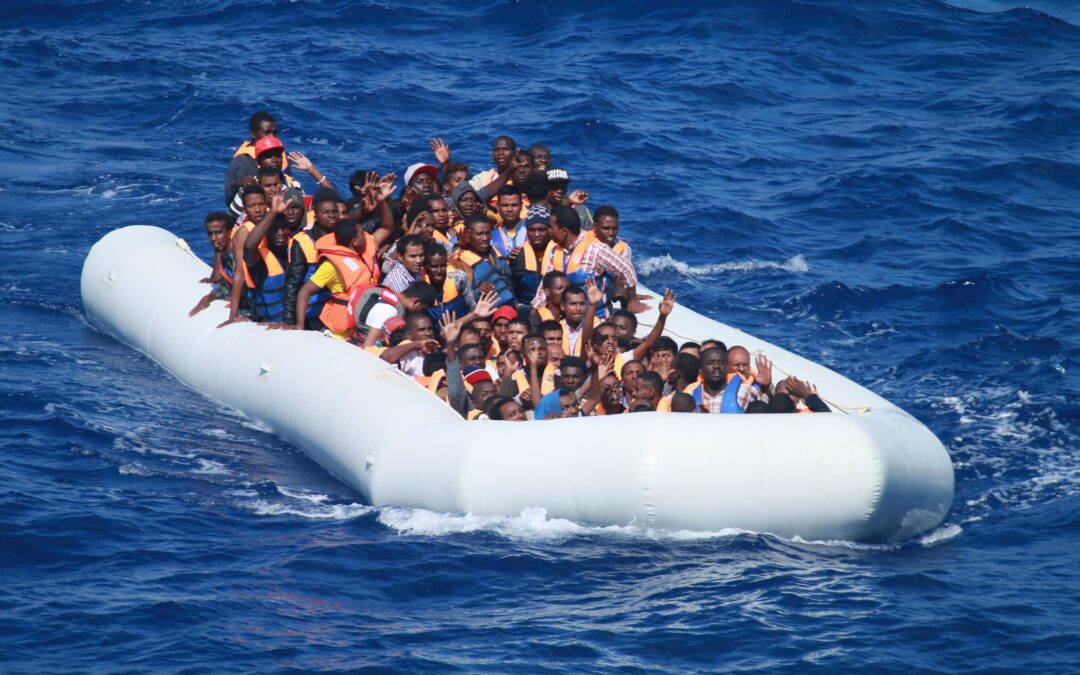Keep our news free from ads and paywalls by making a donation to support our work!

Notes from Poland is run by a small editorial team and is published by an independent, non-profit foundation that is funded through donations from our readers. We cannot do what we do without your support.
Polish Prime Minister Donald Tusk has joined eight other European leaders in calling for a “conversation about the interpretation of the European Convention on Human Rights” in order to make it easier for countries to expel foreign criminals and stop “hostile states instrumentalising migrants”.
In response, the secretary general of the Council of Europe has warned against “weakening” the convention and “politicising” the European Court of Human Rights that is tasked with interpreting and upholding it.
Dit is de kritische brief over criminele asielzoekers aan het Europees Hof voor de Rechten van de Mens. Handtekening premier Dick Schoof ontbreekt, Belgische premier Bart De Wever tekende wel: pic.twitter.com/SL6QXp4fmE
— Alexander Bakker (@alexanderbakker) May 23, 2025
On Thursday, the office of Italian Prime Minister Giorgia Meloni published a letter signed by her and the leaders of Poland, Denmark, Austria, Belgium, the Czech Republic, Estonia, Latvia and Lithuania.
While emphasising that they are all “committed to a rule-based international order” and “share a firm belief in our European values, the rule of law and human rights”, they also declared that the time has come “to restore the right balance” in how these are interpreted.
“It is necessary to start a discussion about how the international conventions match the challenges that we face today,” they wrote. “What was once right might not be the answer of tomorrow. The world has changed fundamentally since many of our ideas were conceived in the ashes of the great wars.”
In particular, they pointed to the issue of irregular migration, and especially the fact that it has led to the arrival of people who “have chosen not to integrate, isolating themselves in parallel societies and distancing themselves from our fundamental values of equality, democracy and freedom”.
The leaders warned that the European Court of Human Rights (ECHR) has sometimes “extended too far” in its interpretation of the European Convention of Human Rights, which “has limited our ability to make political decisions in our own democracies”.
They called for countries to be given “more room to decide nationally” on tracking and expelling foreign criminals, as well as on “countering hostile states that are trying to use our values and rights against us, for example by instrumentalising migrants at our borders”.
Poland is one of two EU countries, alongside Finland, that has suspended the right to claim asylum for migrants crossing its eastern border due the engineering of a migration crisis there by Belarus and Russia.
The Polish authorities have also in recent months sought to clamp down on crime committed by immigrants, including by stepping up deportations.
Parliament has voted in favour of extending the ban on asylum claims by migrants who enter Poland across the border from Belarus.
The measure received support from every political group apart from the left https://t.co/8TIhjwhHSB
— Notes from Poland 🇵🇱 (@notesfrompoland) May 21, 2025
In response to Thursday’s letter Alain Berset, the secretary general of the Council of Europe (of which the ECHR is part), issued a statement on Saturday suggesting that the nine countries were seeking to “politicise”, and even “weaponise”, the court.
“Debate is healthy, but politicising the court is not,” wrote Berset. “In a society governed by the rule of law, no judiciary should face political pressure. Institutions that protect fundamental rights cannot bend to political cycles. If they do, we risk eroding the very stability they were built to ensure.”
“As we face today’s complex challenges, our task is not to weaken the [European] Convention [on Human Rights], but to keep it strong and relevant,” he added.
🇪🇺⚖️Debate is healthy, but politicizing the Court is not. In a society governed by the rule of law, no judiciary should face political pressure. Institutions that protect fundamental rights cannot bend to political cycles. 🇪🇺⚖️
— Judges for Judges (@Judges4J) May 24, 2025

Notes from Poland is run by a small editorial team and published by an independent, non-profit foundation that is funded through donations from our readers. We cannot do what we do without your support.
Main image credit: Commander, U.S. Naval Forces Europe-Africa/U.S. 6th Fleet/Flickr (under public domain)

Daniel Tilles is editor-in-chief of Notes from Poland. He has written on Polish affairs for a wide range of publications, including Foreign Policy, POLITICO Europe, EUobserver and Dziennik Gazeta Prawna.



















